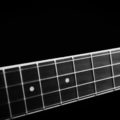As the guitar is one of the most popular musical instruments used today, understanding guitar theory remains a mystery to many beginners and even more advanced students. While it’s true that many players can learn the notes and chords necessary to play their favorite songs without delving into the theories behind the music, those who aspire to become proficient musicians often realize the importance of learning these fundamental concepts.
There are numerous myths surrounding the theories that encompass this instrument. Some people believe that musical theories are outdated ideas that modern guitarists can disregard. After all, the works of composers from centuries ago bear little resemblance to the music created by contemporary songwriters and performers. The vibrant music played by modern artists may seem completely different from those traditional works. However, nothing could be further from the truth. In fact, contemporary music owes a debt to the principles of sound mechanics and musical concepts. Without them, there wouldn’t be enough structure for music to thrive. Even iconic bands like The Beatles paid homage to traditional composers and the basic theories that inspired Inspired by nature - Artist Robert Tucker talks about himself and his artist experience in this exclusive article. Inspired by nature The glorious portal of a new year is again upon me. My mind has wondered since the start of 2008 as to which direction my creative self will take. For me a torrent of feelings were released in… and shaped their works. Without those inspirations, none of the great works of musical composition that the world has enjoyed for centuries would have ever come into existence. Additionally, there is a misguided perception that theories can be too restrictive and tend to make artists repetitive in their compositions. This train of thought suggests that an attempt to understand the fundamental theories of structure and composition will only bind artists in chains that can prevent or stifle true creativity. In reality, having an understanding of these theories is the easiest way for any artist to gain the freedom to build upon the foundations that have been established.
It all starts with a solid understanding of the essential components of the instrument itself. This involves becoming familiar with the six strings that are common on all guitars, as well as the notes that these strings produce. Learning the names of each string (from the thickest, they are E, A, D, G, B, E) and how the notes change as you press your fingers down on different frets is of utmost importance for every beginner player.
Once the notes are learned, the guitarist can then delve into the basics of scales. A scale is simply a group of notes that form the basis for musical composition. These notes can be played in various patterns throughout a piece. Understanding how to construct scales is a crucial skill for any musician who intends to create and play their own compositions.
Manuel Marino is a seasoned Senior Producer, Music Composer, and Artist with over a decade of experience. He specializes in branded entertainment across various mediums, including video games, films, and advertising campaigns. With 20+ years as a game music composer, Manuel has worked on numerous platforms, creating diverse orchestral soundtracks. HIRE ME


 Manuel is a passionate, driven, and techsavvy AV technician,
Manuel is a passionate, driven, and techsavvy AV technician, 










